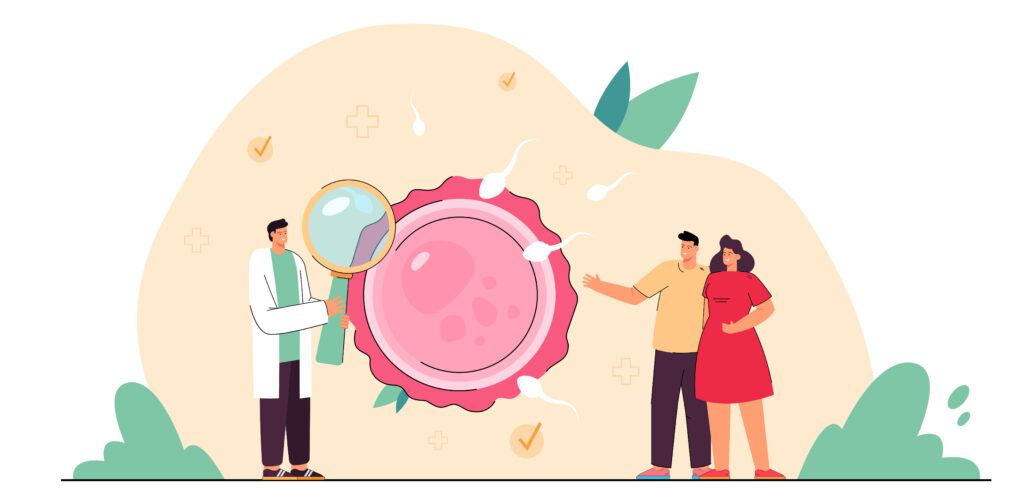There could be multiple reasons for gravidity. Occasionally a simple IVF (in-vitro fertilization) procedure can be your answer to gravidity. ICSI (intracytoplasmic sperm injection) is a simple procedure done with IVF to insure the fertilization of the egg, generally used in cases of severe manly gravidity. In this composition, we shall cover everything you need to know about ICSI including
1) What’s ICSI treatment?
2) How does ICSI work?
3) Why need ICSI?
4) Success rate
5) Cost of ICSI treatment in India
6) Threat factors involved in ICSI
What’s ICSI treatment?
To fertilize a woman’s egg, the head of the sperm must attach to the outside of the egg originally. Once attached, the sperm pushes through the external subcaste to the inside of the egg (cytoplasm), where fertilization takes place. Occasionally, for a variety of reasons like the consistence of the egg’s external subcaste or the incapability of the sperm to swim, the sperm can not access the external subcaste. In similar cases, a procedure called intracytoplasmic sperm injection (ICSI) can be done along with in vitro fertilization (IVF) to help fertilize the egg.
How does ICSI work?
Croakers perform the ICSI procedure with IVF, which involves the injection of a single sperm directly into the cytoplasm of the egg. During this procedure, the croaker inserts a bitsy needle, called a micropipette ( holding a single sperm) into the center of the egg.
Still, they’re left to mature for several days, at which point they come multicellular embryos, If the eggs are fertilized. Healthy embryos are used by croakers for the embryo transfer procedure ( fitting an embryo into a woman’s uterus).
Why need ICSI?
ICSI can help couples who have plodded with gravidity, especially when gravidity issues are manly-affiliated. ICSI during IVF gives you an enhanced fertilization rate, which can increase the number of fertilized eggs available for transfer or freezing.
ICSI helps to overcome fertility problems, similar as
Men with oppressively low sperm count
The sperm may not move in a normal fashion
Men with problems associated with sperm development
Men with a blockage that prevents sperm from being exclaimed ( similar as a vasectomy)
The manly mate produces too many sperm to do artificial copulation (intrauterine copulation (IUI)) or IVF
The sperm may have trouble attaching to the egg
Eggs haven’t fertilized by traditional IVF, anyhow of the condition of the sperm
In vitro progressed eggs are being used
Preliminarily firmed eggs are being used
Success rate
ICSI fertilizes 50 to 80 of eggs. You might assume all eggs get fertilized with ICSI-IVF, but they do n’t. Your Fertilization is n’t guaranteed indeed when a sperm is fitted into the egg. The following problems may do during or after the ICSI process
Some or all of the eggs may be damaged
The egg might not grow into an embryo indeed after it’s fitted with sperm
The embryo may stop growing
Once fertilization takes place, a couple’s chance of giving birth to a single baby, halves, or triumvirates is the same as for a couple using regular IVF treatment.
Cost of ICSI treatment in India
The IVF cost with the ICSI treatment ranges fromRs. toRs.. The minimal ICSI cost in India isRs. 240000 toRs. 250000 per cycle. This includes only the standard and traditional ways. Overall, the cost of gravidity tests is considered to be cheaper in India than in numerous other countries including the USA, UK, Europe, Singapore, and Canada.
The cost of ICSI in India can vary from sanitarium to sanitarium and megacity to megacity. Still, no matter which megacity you choose to suffer the procedure in, the cost is generally only a bit of the cost of ICSI in other corridor of the world. The cost of treatment can also depend on the type of gravidity being treated, the woman’s age, and other factors similar as if any fresh treatments are needed.
Threat factors involved in ICSI
Indeed if ICSI can markedly increase your chances of a successful generality during IVF cycles, there are several pitfalls associated with the process that intended parents must consider before choosing to suffer this procedure.
The ICSI procedure has the possibility of an overall0.08 or eight per births threat of having a baby with chromosomal abnormalities or damaging the eggs due to needle insertion. It can also lead to an increased threat of confinement, heart problems, geste or literacy disabilities, or indeed gravidity in your child during majority.
Because of these pitfalls, it’s necessary to pick a croaker you trust or elect a fertility clinic that has little to no experience with these side goods.



